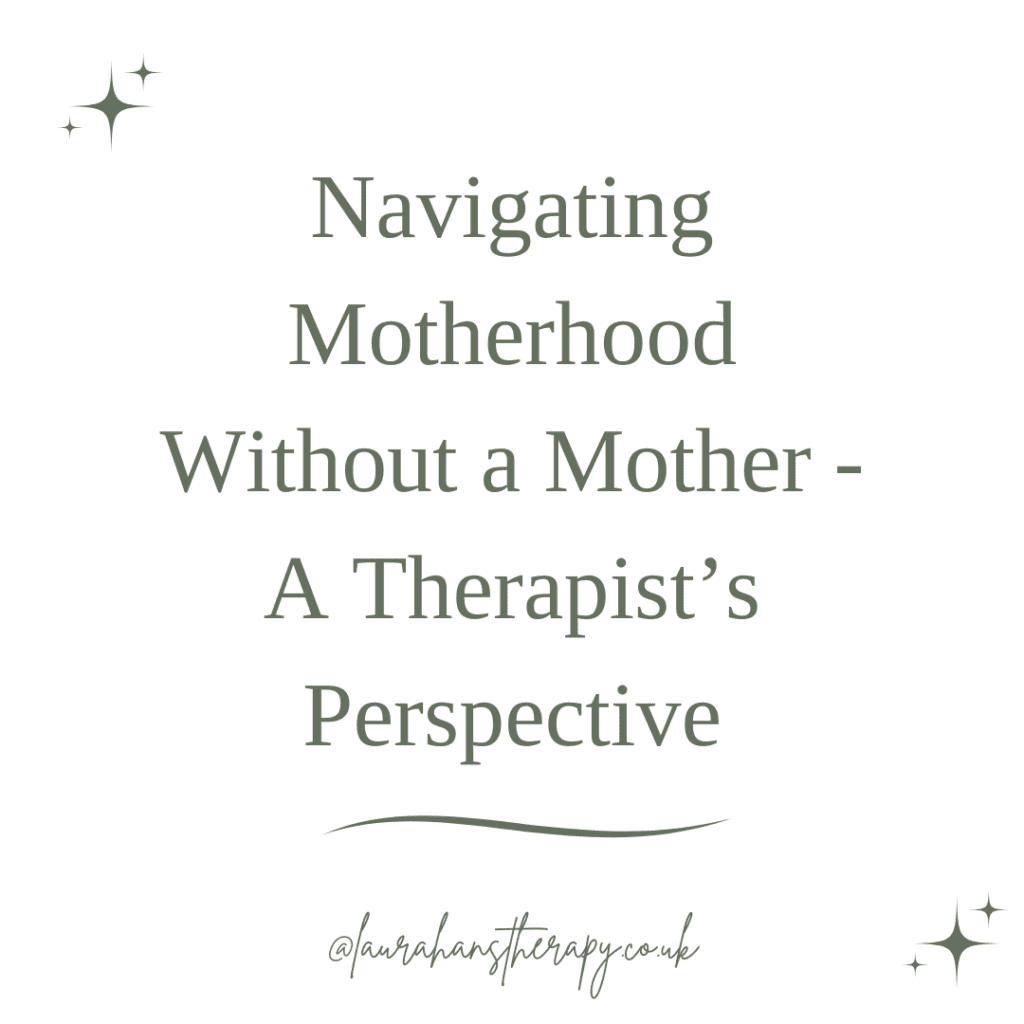Navigating motherhood without a mother of your own can be a painful, challenging experience. Being a mum is hard enough. We weren’t designed to have babies alone. We need to be supported practically and emotionally by our communities. If, for whatever reason, your community doesn’t include your own mum, it can have a profound effect on your motherhood journey.
What’s Missing?
Mothering without a mother might mean going without practical support often provided by mums. For example, by helping with childcare and other domestic duties.
It can also mean you lack social support. For example, mothers can be someone to call and chat with when you’re having a down day.
Finally, there’s the emotional support you would potentially receive from your mum. We shouldn’t underestimate the importance of being mothered ourselves as we work hard to mother our children. I’ve written about this in more depth in Why Mothers Need Mothering.
Reasons You Might Be Mothering Without a Mother
You may be navigating motherhood without a mother because your mum has died. This can prompt a whole host of feelings, including anger and extreme sadness.
Sometimes, people are mothering without a mother due to estrangement – the termination or reduction of a previously existing relationship between family members. There are many reasons an adult child may choose to be estranged from their own mother. Their mother may have mistreated them as a child, leaving them with trauma and lots of unresolved feelings. It might be that their mother is still mistreating them or repeating certain behaviours with their grandchildren. In this situation, estrangement can represent an attempt to prevent this mistreatment and break generational cycles. To learn more about this, read How to Cope With Family Estrangement and What It Means to be a Generational Cycle Breaker.
The Emotional Impact and How Therapy Can Help
As you can see, there are a lot of potential emotions involved in mothering without a mother. Grief, anger, and sadness, to name just a few.
You might experience very confused feelings. For example, if your mother has passed away, but your relationship with her when she was alive was complicated or strained. Maybe you have unfinished business with your mum that her death or estrangement from you prevents you from addressing.
The emotional weight of these things and their impact can be significant. One way therapy can help is via the use of imagery. This approach uses the power of imagination to express unspoken words or emotions to the absent parent.
Another option is chair work. With this strategy, you would imagine your mother in an empty chair in the therapy room. You might even bring a photo of your mum to signify her presence. You can then speak to her as if she is sitting in the room with you, allowing you to express anything you need to but haven’t been able to.
I’ve experienced the power of these strategies in my own therapy, using them to express my anger at the person who hurt me most as a child. It felt a bit weird at first, but as I settled into the process, I found it incredibly beneficial. My feelings of anger calmed down once I had a chance to feel heard.
Mothering Without Your Mother – How to Cope
1. Feel Your Feelings, Validate Them, and Allow Them to Exist
There is no such thing as a bad emotion. Not even anger counts! When something doesn’t feel fair, anger is an understandable emotion, so if it’s part of your emotional journey, allow it to exist. As a therapist, I can assure you it is a healthy, normal emotion to experience. It’s what you do with it that matters.
2. Find People Who Can Support You Emotionally
You need people around you who can understand and validate your feelings and experiences. This can be a big ask for people who haven’t had to navigate motherhood without a mother. For this reason, I’d encourage you to research support groups in your area or online. Hearing other people share similar experiences can help normalise your feelings. These sorts of groups can also provide practical strategies and emotional support.
3. Ask For Help
If the emotions you’re feeling are particularly intense and frequent, and they’re impacting your life to a significant degree, it’s highly likely you’ll benefit from the support of a therapist who can hold space for you to talk about your experiences. A therapist will help you connect with and process your feelings, as well as any trauma you may have developed as a result of having to mother without a mother. They can also support you in processing trauma related to any attachment ruptures with your mum throughout your life.
Join The Nurture Toolkit
If you’re struggling with your motherhood journey for any reason and it’s affecting your mental health, I can help. Subscribe to The Nurture Toolkit to receive free, actionable tips and prompts straight to your inbox, including my new Trigger Log, a resource designed to help you record the people, places and things that trigger tricky feelings and big emotions.
Start Your Therapy Journey Today
Reach out for the help you need by booking a consultation here. I also share lots of encouragement and support via Instagram.
